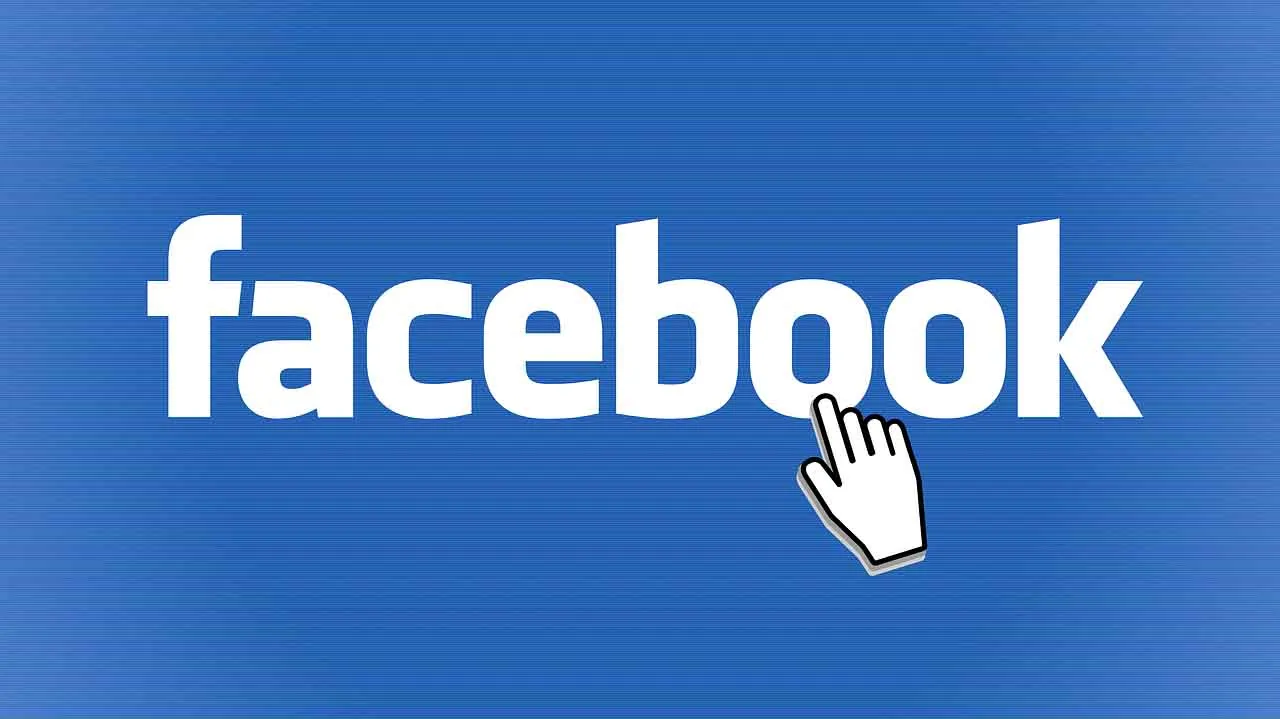It’s a death by a thousand cuts that Facebook faces, both now and in the future of social media experiences. That’s not to say that Facebook (now termed, Meta) is going to go away, just that it’s no longer the big bully on the block.
There are scores of social media competitors nipping at the heels of the Meta giant, forcing Meta into a stance of replication, taking what other social media has perfected and applying its own copy-and-paste variation. Some of Facebook’s competition has more than a chance—they have a leg-up.
You can’t steal Facebook’s thunder on this one. It revolutionized the idea of socialization, turning the anonymity of the web on its head and creating an addictive format where people could socialize and share their stories, with the “Like” button becoming synonymous with consumer appeal.
Meta’s Current Status
Meta currently has an active account user base of 2.7 billion and they own WhatsApp and Instagram. The ownership of the latter two enables Meta’s chameleon-like ability to reverse-engineer new and innovative social media tools.
For instance, Instagram ripped the legs out from under Snapchat when it emulated Snapchat stories. Meta then went on to facilitate a clone of Houseparty’s live group video, effectively sending Houseparty into a downward spiral that only ended when Houseparty was sold off Epic Games.
Very few people have even heard of Houseparty, which is a tribute to Meta’s ability to steal and clone rival innovations. Meta’s built-in userbase, across its own platform along with Instagram and WhatsApp, provides it with a huge advantage over social media start-ups.
Why break ranks with Meta and join a new social media app when Meta is doing the same thing over here? It worked for a long time and at the end of 2020, Meta had raked in $86 billion in revenue, while maintaining 58,000 employees.
This leads investors to predict Meta’s continued growth well into the next decade. Meta’s primary source of revenue is in advertising, just like most other social media but there are also other revenue streams that Meta takes advantage of as well, including boosted posts, Augmented Reality, Virtual Reality, and E-commerce.
Current Competitors That Threaten Meta’s Throne
The death by a thousand cuts moniker is very real. Meta descent won’t be dependent on one, giant company that effectively does what Meta does better. Meta does what it does exceedingly well. It will take a multitude of companies with a more singular focus on innovations that Meta cannot consistently and profitably copy.
TikTok
Some would argue that Google belongs in the number one spot of effective competition with Meta, however, what Tik Tok did is deserving of the spot. TikTok came out of left field and took such a gigantic bite out of Meta’s user base that the social media giant was left reeling for a short time.
TikTok found that sweet spot between hilarity and the daily lives of human beings compressed into short videos that are quickly accessible. TikTok’s major disadvantage is the deserved controversy over its privacy features.
TikTok is owned by a Chinese firm and the downright stupifying array of private information TikTok gathers from individuals is simply too much for some countries. As the word spreads on TikTok’s gathering of literally every nuance of personal information (even your keystrokes when not in the app), it will eventually lose to Meta.
The fact that TikTok will fail, however, is not the point. The point is, they cut Meta, revealing to all that the social media giant does indeed bleed.
Most people don’t think of Google as a competitor to Meta because of their relative associations—Google as a search engine and Meta as a social media platform. However, Google’s competition with Meta is primarily in ad revenue.
If Google had a more competitive social media platform (Google Hangouts was an abysmal failure), then Google would be the dominant company by far. As it is, Google dominates Meta in terms of ad revenue with Google’s ad revenue twice the size of Meta’s/
Although Google’s forays into social media have largely been met with failure, they remain Facebook’s largest competitor. With other, smaller social media companies vying for Facebook’s throne, it may make it harder for Facebook to minimize Google’s potential, future social media products, and innovations.
Twitter is a bit of a mixed bag right now, due to the company’s predilection towards censorship (whether you agree or disagree it’s still a very relevant model in terms of consumer appeal) and their current battle with Elon Musk.
If Elon Musk’s claims about Twitter bots end up being true, Twitter would face a major blow from its investors. However, that doesn’t mean that Twitter would be dead in the water. Many people enjoy Twitter its simplicity and the ability to feel like they can be a part of major events in the world.
While Meta’s socialization tends to revolve around friends and family in your social circles, Twitter expands that socialization level to anywhere. You can tweet the Prime Minister of Great Britain, the President, the CEO of a major media empire, and more.
What Twitter has that Meta lacks is reach and there is a great deal of appeal there. Twitter’s strength lies in the fact that it is the number one competitor with Meta, strictly in terms of social media.
The results of Twitter’s suit against Elon Musk and Musk’s demand that Twitter is more forthcoming about bots on its platform will lay the groundwork for Twitter’s future. However, there is no denying Twitter’s solid foundation and they are not likely to go anywhere anytime soon.
Another example of death by a thousand cuts. LinkedIn is the Meta of business. Where Twitter steals Meta’s long-reach social media and Google dominates Meta in ad revenue, LinkedIn steals Meta’s business-side social media.
There are over 470 million active users on LinkedIn. As a social media platform, it’s as simple to like, respond, share, and involve yourself in a number of social media aspects of the day. LinkedIn also has a fairly strong platform for those looking for work, connecting with businesses, and getting their own brand out there for potential employers.
While Meta is useful for expanding your brand, it has nowhere near the leveraging power of LinkedIn for getting your brand in front of the people that matter the most. LinkedIn is also available in 200 countries and it’s hard to convey the power such reach gives to entrepreneurs.
For instance, a freelance writer can hire on with a major Outdoors brand in Denmark and write for their blog. An HTML expert can design webpages for an upstart business in India. Dropshipping is an enormously successful business venture, using the LinkedIn platform as a catalyst.
Thanks to the tools that LinkedIn brings to the table, it positioned itself as the most used social media platform by Fortune 500 companies.
Pinterest competes with Meta in terms of referral traffic to business websites through the use of pictures, videos, and links and how they are shared. Pinterest doesn’t share the same model as Meta, yet Pinterest has become the fastest-growing social network in history.
With 200 million active users, the activity on Pinterest is arguably more dynamic than it is on Meta. Social media users tend to engage more on Pinterest, which is something that Meta is probably keeping a sharp eye on, determined to emulate it.
Business marketing is enormous on Pinterest and it’s this area that puts it in direct competition with Meta the most. Pinterest has constructed a global empire as one of the most attractive platforms for business marketing.
The only thing holding social media platforms like Pinterest back is the fact that Meta is also a great platform for business marketing. Part of the pathway to toppling giants like Meta is the ability to do something so well that Meta becomes nothing more than an afterthought. Pinterest, as dominant as it is, has not demonstrated this capability.
YouTube
YouTube is the reigning king of user-generated video, media, and business-related content. It owns a share of social media that Meta cannot compete with, despite their attempt to one-up small-clip video giants like TikTok.
Since 2016, YouTube maintains well over 150 million users every month. Like Meta, the vast majority of YouTube’s revenue comes in the form of ad revenue. Over 1 billion hours of content are consumed on YouTube every month, which is an astonishing accomplishment.
Of course, YouTube is owned by Google so their ad revenue is a major reason that over 40% of Google’s annual revenue comes from ads. Meta uses video content as well but they lack longevity in terms of value over time.
Since YouTube can take advantage of Google’s search algorithms, they have a distinct advantage over Meta. Speaking of Meta’s video presentation formats, Meta considers a “view” much different than YouTube. Where YouTube counts a view as a user’s click on a video, Meta counts automated video playback as users scroll by it.
Amazon
Amazon is not a competitor with Meta in terms of social media, especially since Amazon is far more enmeshed in E-commerce and advertisement. Amazon held 8.8% of the ad share, well below Google and Meta. However, Amazon’s ad share is predicted to continue rising.
That prediction is indicative of a competitive threat to Facebook. While Meta’s market grew by a very pedestrian .3% from 2019 to 2020, Amazon saw a 2% increase. That may not seem like much, but it’s 7 times the growth rate of Meta.
Meta, once again using the strategy of copying a platform and pushing the competition out, created the Facebook Marketplace. Unfortunately, for Meta, it’s essentially a local marketplace for communities to buy and sell, with nowhere near the consumer loyalty of Amazon’s E-commerce goliath.
Snapchat
Instant messaging and sharing media are Snapchat’s forte. Like Pinterest, Snapchat is on a path of immense growth and is wiping the floor with the likes of existing video messaging social media apps.
Apple’s Facetime is essentially secure in its Apple consumer bubble but Messenger, Meta’s primary messaging platform, is not. In fact, Meta views Snapchat as such a threat to its hold on social media consumers that it attempted to buy Snapchat.
Snapchat refused and now users are sharing over 10 billion videos on the Snapchat platform every day. That’s “day,” not “week” or even “month.” Since it couldn’t buy Snapchat, Meta fell back on its number one strategy of reverse-engineering and creating what is essentially the same thing.
Despite Meta’s success in this, Snapchat still owns the vast majority of young men and women when it comes to video sharing.
What Must Competitors Do to Overcome Meta?
Competing social media apps have a couple of major hurdles to overcome when taking on Meta. The first is the insane user base that Meta commands. Meta is an international powerhouse and it takes a lot to pry away consumer loyalty to the Meta brand.
The second issue is intangible because it has to do with the psychological hold that Meta has over its users. Major documentaries were created over the addiction to something as simple as the “like” button.
It’s hard to nudge consumers out of their comfort zones. Joining a new social media app and making it your primary app is to say goodbye to the 1,500 friends on your Meta account, 99% of whom a typical Meta user doesn’t interact with very often at all.
Tackling the empire that Meta has built and is still building will quite literally take a “death by a thousand cuts” approach. That’s what you’re seeing with most of the major social media platforms, specifically those listed above.
The Future of the Meta Platform
What makes things even more complicated for current competitors and future competitors is the Metaverse. Facebook changed its name to Meta mostly because of its desire to get ahead of the game on the Metaverse.
If you’re unfamiliar with the Metaverse, imagine a toned-down version of what the movie and book, Ready Player One, conceptualized in spectacular fashion. A speculative view of the future of the Metaverse is essentially an online social platform done in an open-world style.
You’ll have towns, cities, and worlds of territory to explore, shops to purchase NFTs, and places to go to compete in online games. Meta would love to own such a world where they could basically saturate everything in ad revenue.
There are currently more online games than are worth counting that pertain to the Metaverse in one way or another, such as Upland, The Sandbox, Viverse, Axie Infinity, Decentraland, and more.
Meta has already purchased Oculus VR, a virtual reality gaming console, so the basic understanding is that Meta wants to go in the direction of Metaverse gaming in an entirely virtual environment, rather than on a computer or traditional gaming console.
There is little doubt that it’s a risk on the part of Meta, as the so-called metaverse may not pan out in the end. If it does, it may not take shape in the way that Meta anticipates. In the latter scenario, Meta competition would do well to quickly fill the gaps in whatever form a potential metaverse ultimately takes.
The Problem with Meta Mergers and Acquisitions
One advantage that Meta has on its side, especially in terms of competition, is how long it has been around. Being one of the first, massive social media platforms (there were others, such as MySpace that never panned out), Meta has managed to integrate itself into people’s daily lives in many ways.
Meta has also had the time and the money to facilitate several mergers and acquire multiple properties that extend its influence into other social media spaces. Instagram and WhatsApp are just a part of that.
Meta has facilitated 95 acquisitions over its lifespan. Many of those acquisitions are in the realm of Virtual Reality and gaming, including BigBox VR, Ready at Dawn, and WaveGroup Sound (Video game audio).
Many of Meta’s acquisitions are social media platforms that Meta saw value in, determined could potentially become competition, or bought for cheap because of the purchased platform’s inability to make it to the big leagues.
That’s a huge headstart on some of the emerging social media platforms and even some that have been around the block a few times. It gives Meta an enormous advantage and the biggest way to compete with Meta is to draw away its consumer base piecemeal, rather than all at once.
Unfortunately, the all-at-once approach is not going to serve emerging and existing social media platforms very well. Offering something that Meta lacks or doing something that Meta already does, but far better, is the key to undermining its growth.
All Things Considered
Facebook competitors have more than a chance and both the social media platforms and E-commerce platforms that are well-known and still standing are testament to that. While Meta has the deck stacked in its favor, many of the cards in that deck are low suits and easily taken advantage of.
The future of the competition with Meta will likely come to the forefront when more of the metaverse and its implications become realities. Until then, Meta is not going anywhere but neither are Google, Twitter, Pinterest, YouTube, and so many others.








0 Comments